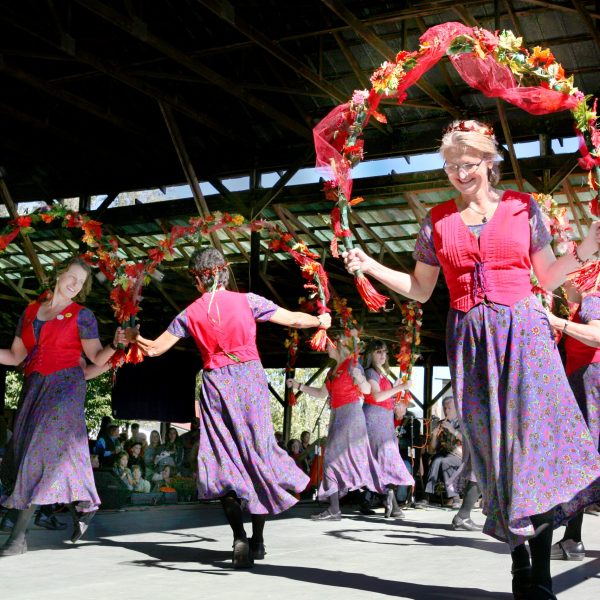
Community Dance Teams
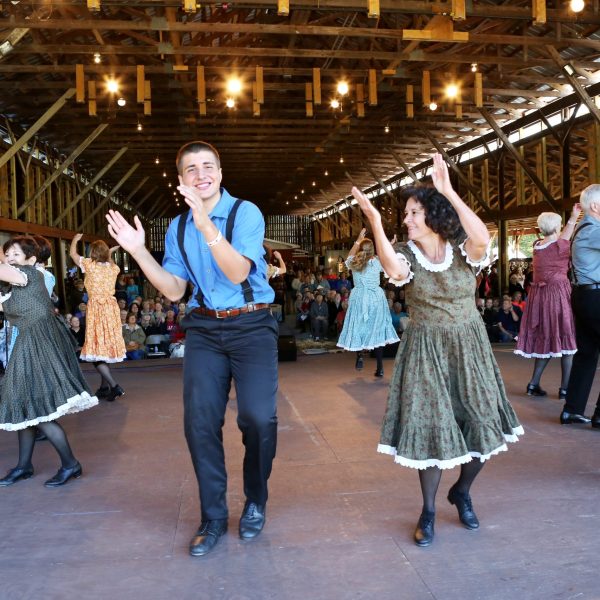
Dancers from the ages of six to sixty (and beyond) have formed a traditional Appalachian style clogging group at the Folk School since 1989. This percussive dance form is often performed to bluegrass or “old-time” music, based on Irish and Scotch-Irish fiddle tunes. Dancers wear leather soled shoes with taps. Those within driving distance meet on Monday evenings to practice. Beginner classes are offered periodically. The group performs at regional events throughout the year; the largest performance is at Fall Festival in October. For information, contact Dianne Jackson at 828 837 8090.
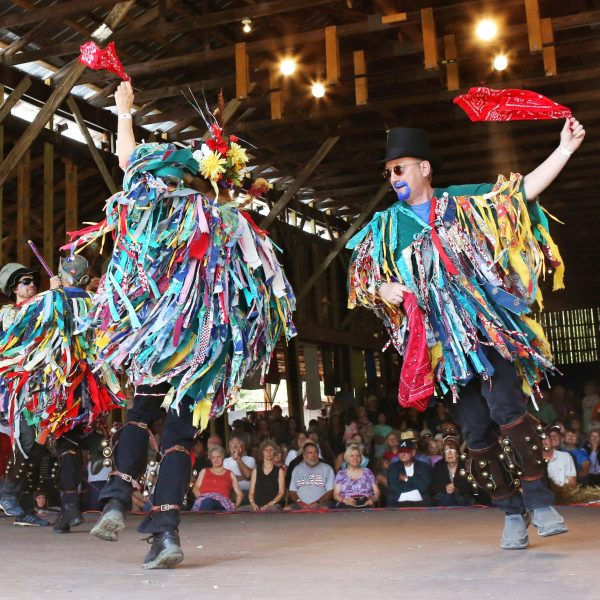
Stix-in-the-Mud Border Morris Dancers
The earliest record of Morris dancing dates from the aftermath of the crusades. It was a seasonal, ritual dance done by men in disguise, often at Christmas or May Day, with vaguely symbolic meanings. The “Border” version is mock sword fighting and bluff. It came from the English side of the Welsh border, and was intended to show those Welsh what they would get if they dared come over that border. Dancers perform with painted blue faces, colorful rag coats, loud leg bells, and plenty of attitude. They beat sticks together and shout rude taunts; even more cruel, sometimes they sing.
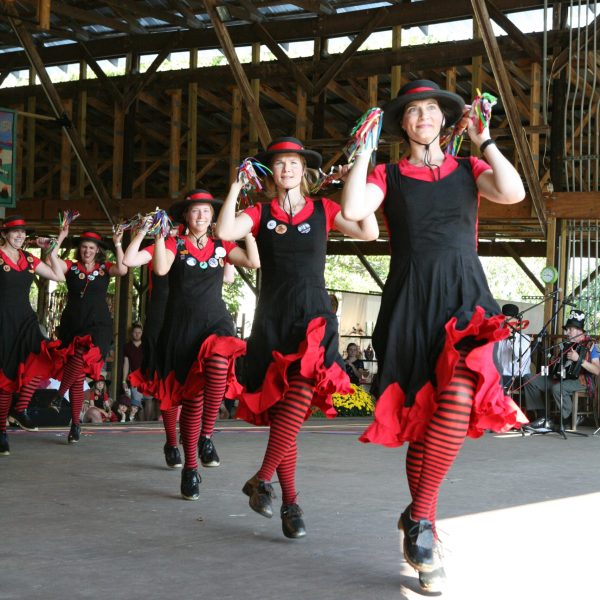
Dame’s Rocket Northwest Clog Morris Dancers
A women’s group named after an old Anglo-American favorite cottage garden weed. The name also celebrates the John C. Campbell Folk School’s founder, Olive Dame Campbell. The side dances a style called “Northwest Morris” or sometimes “Clog Morris.” It is often, though not always, performed in wooden clog shoes. In 1938, King George VI and Queen Elizabeth (of recent memory as the “Queen Mum”) visited Franklin and Eleanor Roosevelt at the White House and saw a performance by the Pisgah Dancers, from Haywood County, NC. Said the Queen, “It’s rather like our clogging!” So goes the story of how Appalachian hoe-down/flat-foot/buck-dance became known as clogging.
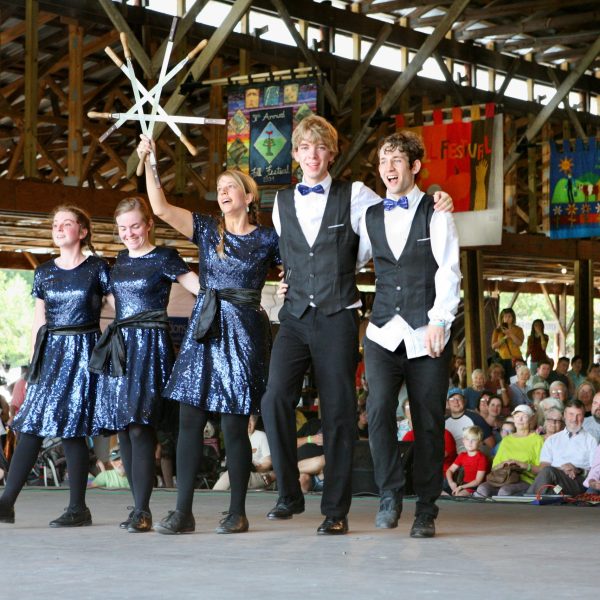
Rapper Magic Sword Dancers
“Rapper” probably should be spelled “wrapper.” It refers to the flexible metal “swords” which are really curry combs. It is a flexible piece of spring steel with a wooden handle on each end. They were used to wipe down horse sweat on the miners’ pit ponies in the North of Yorkshire. Bored stable boys figured out that a bunch of them could all take hold of these implements, and without turning loose, could do a number of antics and capers that would get them the attention of stable girls. It moves very quickly and looks quite impossible and dangerous.
Locate & Contact
Please contact Programming for more information.
The John C. Campbell Folk School
Programming
Darcy Holdorf: Programs Director
1.800.FOLK.SCH (365-5724)
Mailing Address
One Folk School Road
Brasstown, NC 28902



